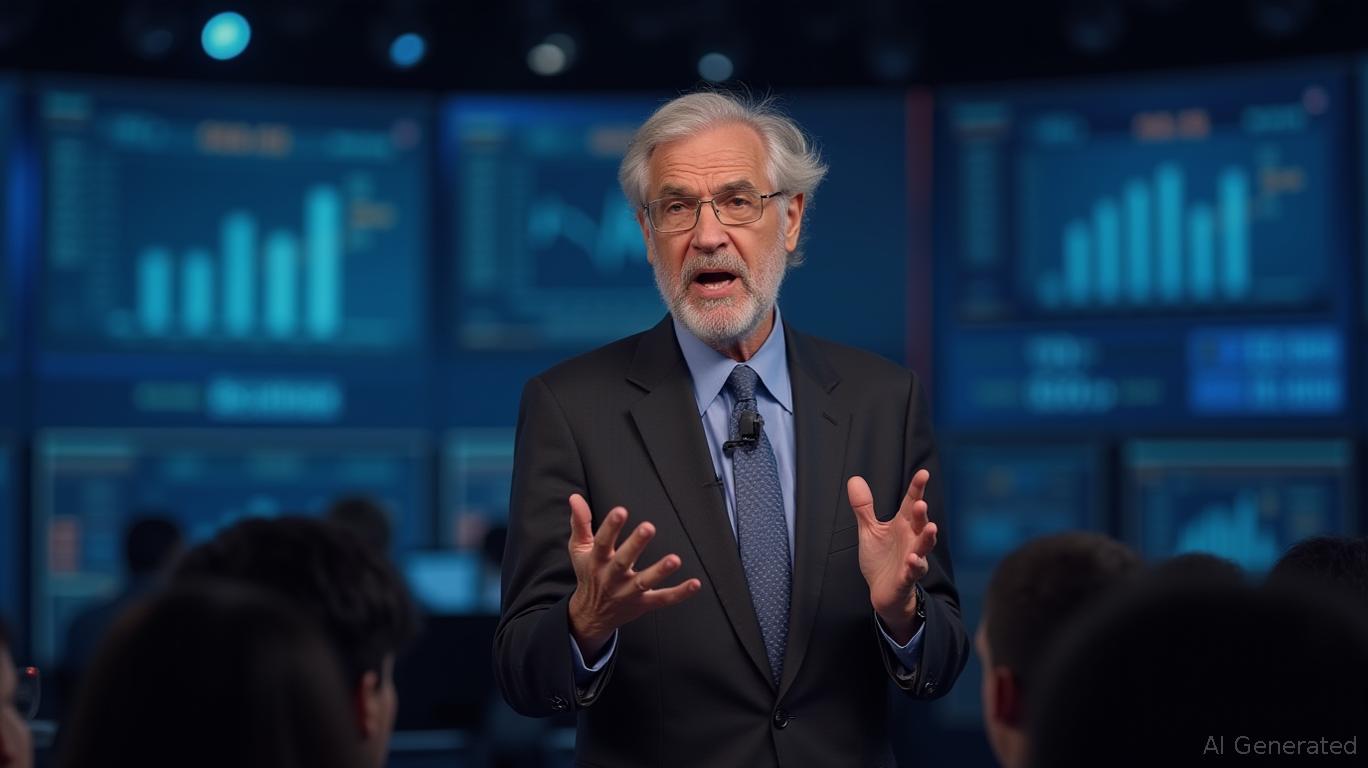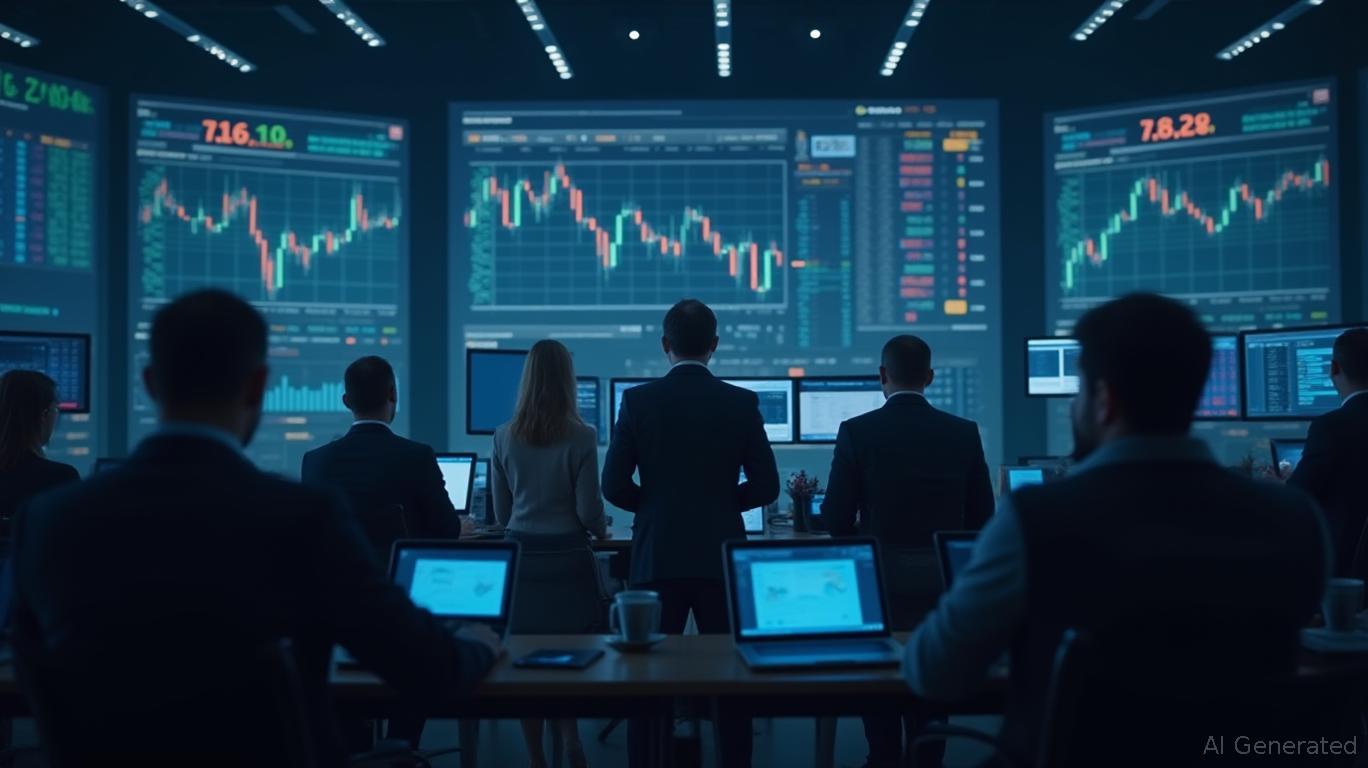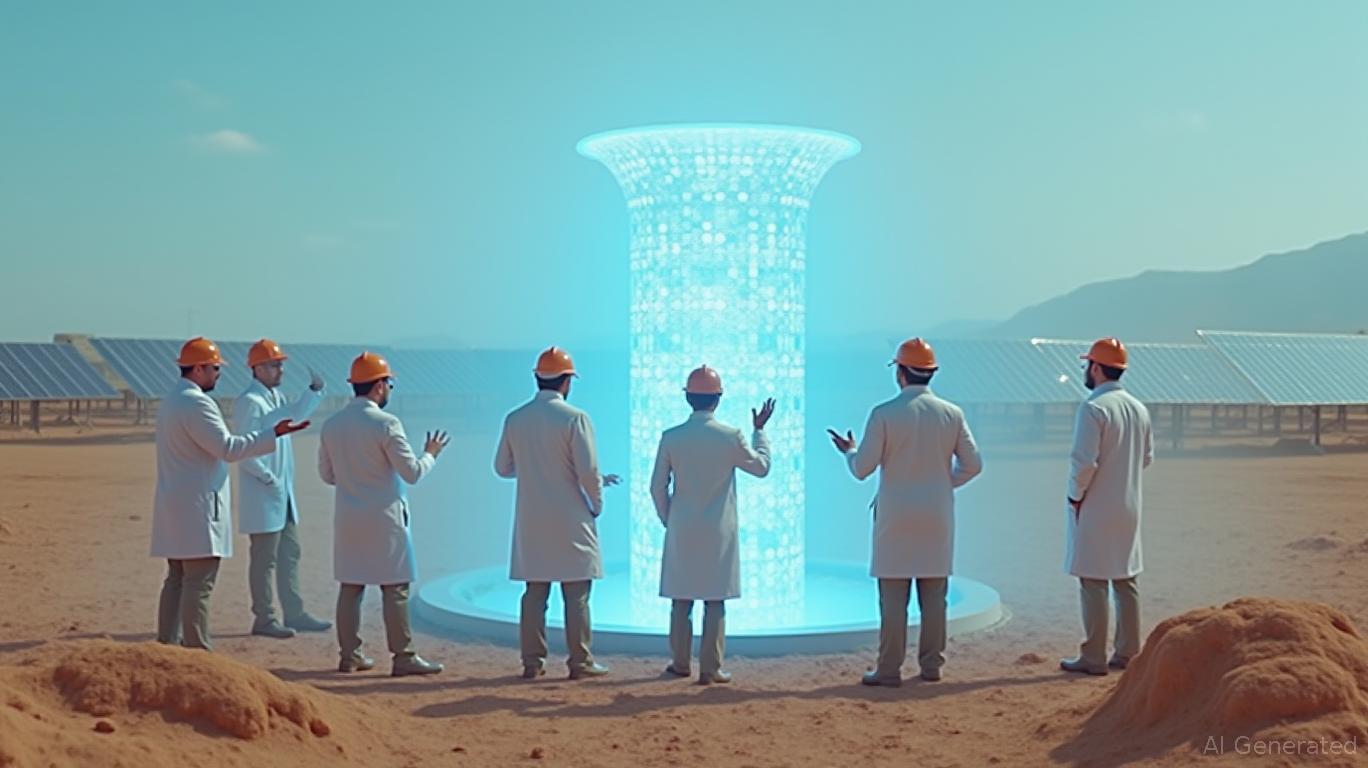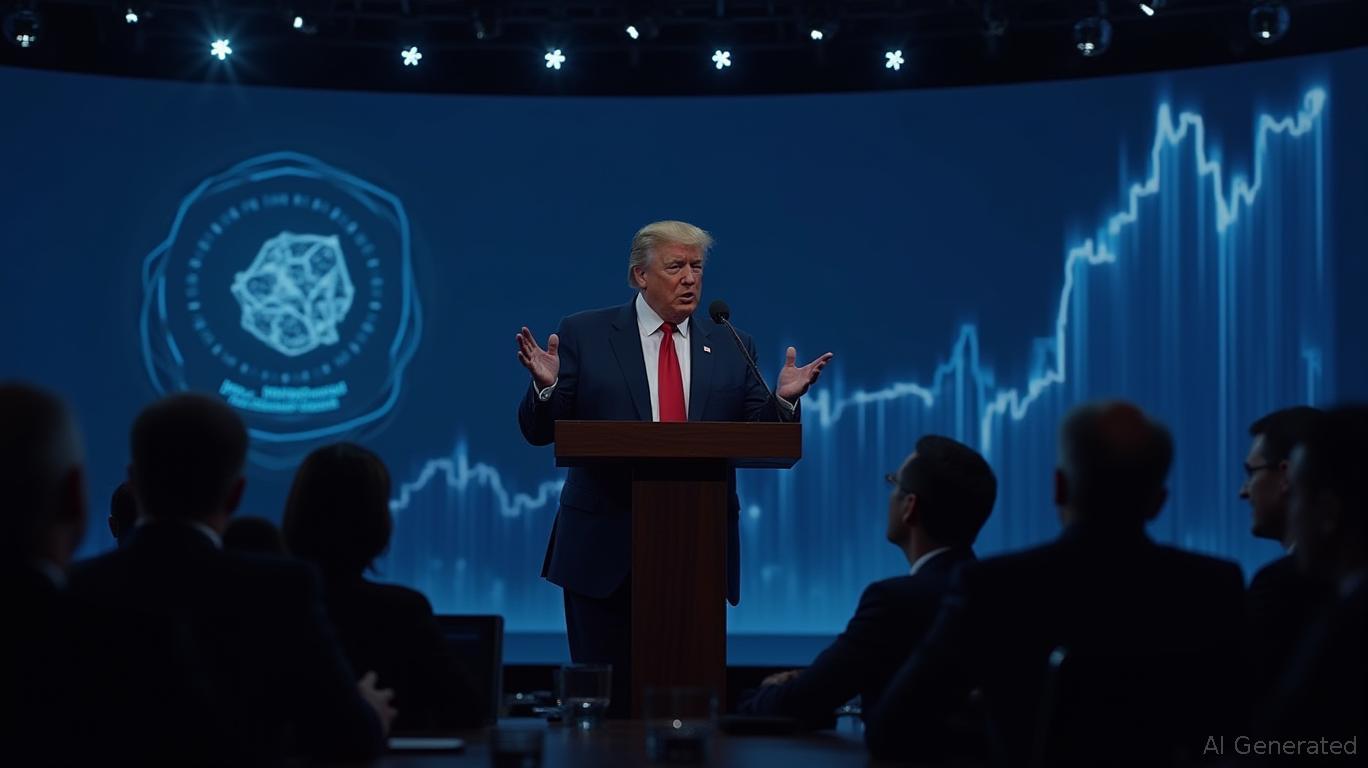Krugman Cautions That AI-Fueled Expansion May Widen Inequality and Deepen Economic Disparities
- Nobel laureate Paul Krugman warns the U.S. economy faces "abnormal" challenges, including AI-driven inequality, stagnant employment, and deepening polarization. - He highlights three key issues: sectoral divides from AI growth, an "employment freeze" with limited job access, and K-shaped growth favoring high-income groups. - Krugman criticizes delayed data releases and urges policy reforms to address systemic imbalances, as global trade tensions and Trump-era tariffs complicate economic stability. - His
Paul Krugman, a Nobel laureate in economics, has delivered a sobering evaluation of the U.S. economy, characterizing it as "unusual in several ways" due to intensifying polarization, stagnant job growth, and widening wealth gaps, as reported by a
Krugman identified three major factors influencing the present economic environment. First, he observed a pronounced split between industries: sectors powered by AI are advancing rapidly, while others are lagging behind. This split, he contends, intensifies both regional and professional disparities, leaving many workers with few options to adjust. Second, he described a situation of "frozen employment," where job hunters consistently struggle to find positions even though mass layoffs are not occurring. Third, Krugman highlighted a "K-shaped recovery," where investments driven by AI primarily benefit the wealthy and large companies, while those with moderate or lower incomes face higher expenses and limited access to economic improvements.

The economist stressed that these developments are not just statistical outliers but reflect deeper structural problems. "The U.S. economy is departing from typical patterns in multiple aspects," he noted, warning that policymakers may be making decisions with "incomplete information" in the absence of up-to-date data. His perspective echoes wider worries about inequality fueled by AI, as discussed in recent reports, including
Krugman's cautions arise against a backdrop of worldwide economic instability, such as trade disputes between the U.S. and China, Argentina's divisive elections, and tariffs from the Trump administration that have altered global trade. Nevertheless, his primary concern is with domestic structural issues, calling for a reassessment of policies that overlook the uneven benefits of AI-driven growth.
As discussions over economic policy grow more heated, Krugman's insights highlight the urgent need for focused measures to close the growing divide between technological advancement and shared prosperity.
Disclaimer: The content of this article solely reflects the author's opinion and does not represent the platform in any capacity. This article is not intended to serve as a reference for making investment decisions.
You may also like
Bitcoin Latest Updates: James Wynn's 40x Short Challenges Bitcoin's Upward Trend
- James Wynn opened a 40x leveraged short on Bitcoin via Hyperliquid, betting against its $115,000 surge driven by Fed rate cut expectations. - Despite a 33.33% win rate and $22M in losses, sources claim he recently earned $250M via undisclosed strategies, fueling debate over skill vs. luck. - A 40x short by "0xdDc" faced $4M losses after a Trump-related event, highlighting risks of leveraged positions in volatile crypto markets. - An anonymous $208M Hyperliquid short during U.S. tariff announcements exace

Bitcoin Updates: Bitcoin Matches Equities in Investment Portfolios as $30B Inflows Indicate Institutional Transition
- Crypto market consolidates amid cautious trading ahead of macroeconomic events, with Matrixport noting "mostly sideways" conditions despite sustained institutional inflows. - Bitcoin rebounds to $126,000 after $3.55B ETF inflows in October 2025, driven by BlackRock's iShares Bitcoin Trust and growing corporate BTC holdings. - Market volatility spikes from Trump's China tariff threat ($19.35B liquidations) but stabilizes near $111,000 support, with Fed's October 29 rate cut (96.7% expected) seen as potent

ISR Technology Fuels America's Uranium Comeback to Strengthen Energy Security
- enCore Energy discovers shallow uranium deposits in Texas using ISR, cutting drilling costs by 40% and leveraging existing infrastructure for rapid production scaling. - Urano Energy acquires enCore assets to expand its uranium portfolio, aligning with U.S. energy security goals amid reduced reliance on Russian and Central Asian imports. - Federal policies and DOE initiatives prioritize domestic uranium production, with enCore's dual ISR operations (Alta Mesa/Rosita) positioned to benefit from regulatory

Trump’s Innovation Strategy Fueled by Unified Crypto Oversight and Advancements in AI
- Trump nominated SEC crypto task force chief Michael Selig to lead CFTC, aiming to unify cryptocurrency regulation and clarify agency authority over digital assets. - Port3 Network expanded Web3 AI infrastructure through five strategic partnerships, enhancing agent development and security while participating in industry growth discussions. - Defense AI firm BigBear.ai saw 300% stock growth from military contracts and airport tech, despite $228.6M losses, with $390M cash reserves supporting future expansi
